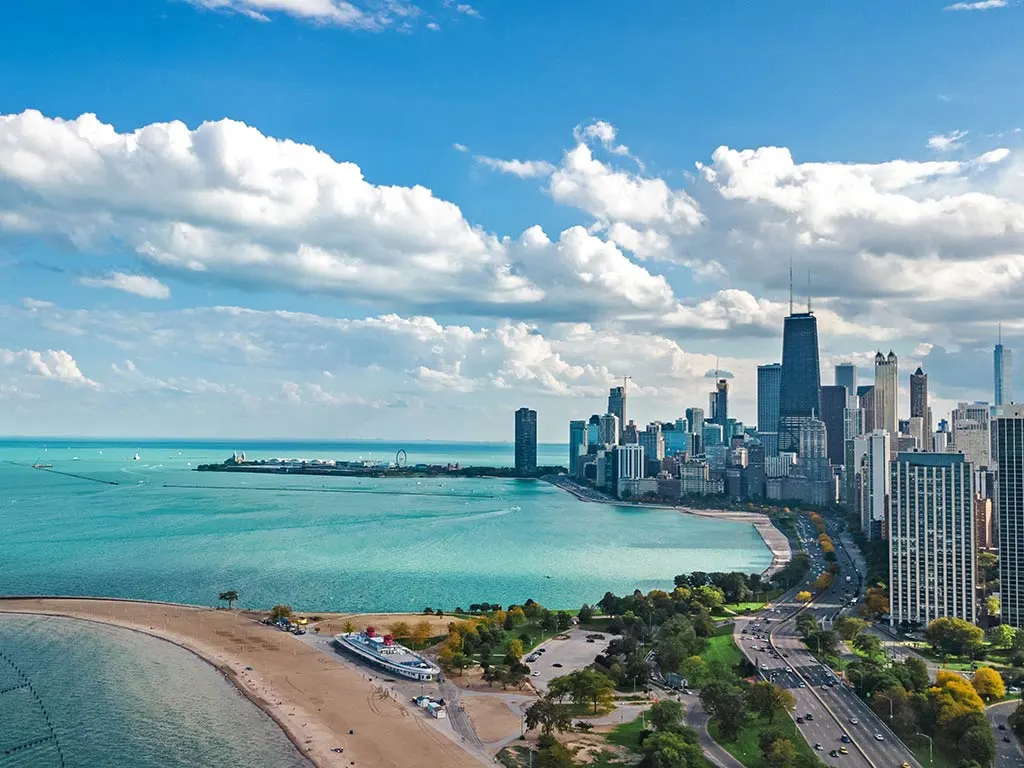Illinois Faces Devastating Exodus as Families Flee State Amid Skyrocketing Taxes and Failing Economy due to…read more
Illinois Faces Devastating Exodus as Families Flee State Amid Skyrocketing Taxes and Failing Economy
So sad.
Illinois is grappling with a crisis of unprecedented scale as thousands of residents pack up and leave the state in search of more affordable living and greater economic stability. The state’s once-thriving economy is now weighed down by skyrocketing taxes, a rising cost of living, and political gridlock that seems to have no end in sight. As a result, many Illinoisans are fleeing for greener pastures, taking their families, businesses, and dreams elsewhere.
The Great Illinois Exodus
The data is clear: Illinois is losing residents at an alarming rate. According to recent census figures and migration trends, the state saw a net loss of over 100,000 people in 2023 alone. For years, Illinois has ranked among the top states for population decline, with many citing high taxes, dwindling job opportunities, and an ever-bleeding budget as the primary reasons for leaving.

Families are increasingly making the difficult decision to uproot their lives in search of a more stable future. Many are heading to neighboring states like Indiana, Wisconsin, and Missouri, where the cost of living is lower, and taxes are more manageable. But even further destinations like Florida and Texas are seeing surges in Illinois ex-pats, drawn by the promise of no state income tax, affordable housing, and stronger job markets.
The Toll of Skyrocketing Taxes
Illinois’ financial woes can be traced back to years of mismanagement and an inability to rein in its mounting debt. The state’s pension crisis has become a national embarrassment, with unfunded pension liabilities now totaling over $140 billion. In an attempt to bridge the gap, lawmakers have increased income taxes, property taxes, and other fees, making it harder for families to make ends meet.
For many Illinoisans, the burden of these taxes is simply too much to bear. The average property tax rate in Illinois is one of the highest in the nation, and with property values rising in many areas, homeowners are seeing their tax bills climb to unsustainable levels. Coupled with income taxes that are among the highest in the country, the financial pressure is causing many to look elsewhere.
“I’ve lived here my whole life, but I just can’t do it anymore,” says Jennifer, a lifelong resident of suburban Chicago. “Between the property taxes and the high state income tax, we’re barely making it. We’re moving to Florida next month, and I honestly feel like I’m saying goodbye to a place I loved, but I just can’t afford to stay.”
A Failing Economy
The economic outlook for Illinois is grim. High taxes have driven businesses to leave, taking with them jobs and opportunities for the state’s workforce. Chicago, once a bustling hub of industry and innovation, has seen many of its most notable companies move their headquarters to other states with more business-friendly climates. As businesses flee, unemployment rates rise, and the cost of living continues to climb, leaving many families struggling to get by.
Compounding this economic decline is the state’s crumbling infrastructure. Decades of deferred maintenance on roads, bridges, and public services have left residents frustrated and disillusioned with their local governments. Public schools, once a strong point for the state, are underfunded, and the healthcare system is failing to keep up with the needs of a growing population. These systemic issues have become so deeply entrenched that many residents feel there’s little hope for real change.
Political Gridlock and Dysfunction
Illinois’ political leadership has also come under intense scrutiny. Despite repeated promises of reform, both Democratic and Republican lawmakers have struggled to agree on meaningful solutions to the state’s budget and economic problems. The state government remains paralyzed by partisan infighting, leaving residents feeling abandoned by those in power.
Governor J.B. Pritzker’s administration has faced backlash for increasing taxes and failing to adequately address the state’s financial crisis. Critics argue that the governor’s policies have only served to push more residents out of the state, with no clear path forward. Meanwhile, local governments, faced with rising costs and dwindling revenues, are forced to raise taxes on homeowners and businesses, further exacerbating the problem.
For many, this gridlock is a painful reminder that Illinois’ leadership is more focused on maintaining political power than addressing the real issues facing its people.
The Human Cost of the Exodus
The human toll of this mass exodus cannot be understated. Entire communities are shrinking, and families who have lived in Illinois for generations are being forced to start over in unfamiliar places. The departure of so many residents also means fewer people to fill local jobs, support schools, and contribute to the state’s economy.
Local businesses, too, are feeling the impact of this exodus. Mom-and-pop shops are closing as foot traffic dwindles, and larger companies are relocating, leaving empty storefronts behind. Many small-business owners, exhausted by the burdens of taxation and regulation, are finding it increasingly difficult to survive in the state’s hostile business climate.
“I spent years building my business here, but with the way things are going, I just don’t see a future in Illinois,” says Tom, a small-business owner in Springfield. “I’m thinking about moving to Texas. It’s heartbreaking because this is where my family’s been for decades, but I can’t keep sinking money into a state that doesn’t seem to care about its residents or small businesses.”
The Future of Illinois
As Illinois continues to bleed residents and businesses, the question remains: can the state turn things around? Some lawmakers are calling for sweeping tax reforms, reductions in spending, and changes to how the state handles its pension crisis. But with political gridlock holding up any meaningful progress, the future looks uncertain.
For now, it seems that the exodus will continue, and Illinois will have to face the harsh reality of losing its most valuable asset—its people. In the end, the state’s story may become a cautionary tale for others, a reminder that when governments fail to address the needs of their citizens, those citizens will ultimately vote with their feet.
It’s a sad and heartbreaking chapter in Illinois’ history, and many fear it’s only just the beginning.











Post Comment